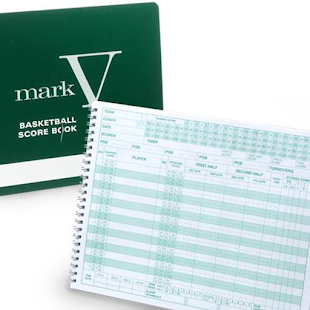Mastering The Basketball Scorebook – Your Key To Game Analysis
Basketball Scorebook: Your Key to Game Analysis
When it comes to the world of basketball, much of the excitement lies in the fast-paced action on the court. The slam dunks, three-pointers, and lightning-fast passes keep fans on the edge of their seats. However, behind the scenes, a crucial aspect of the game often goes unnoticed but plays a vital role in understanding and improving a team’s performance: the Basketball Scorebook.
In this comprehensive guide, we will explore the ins and outs of the basketball scorebook. From understanding its components and importance to learning how to keep one yourself, we will unlock the secrets of this essential tool for coaches, players, and avid fans alike.
The Anatomy of a Basketball Scorebook
Before we dive into the reasons why a basketball scorebook is so crucial, let’s first break down its key components.
Game Information: The scorebook begins with essential details such as the teams’ names, dates, locations, and officials’ names. This information helps provide context for the game and serves as a reference point for future analysis.
Player Roster: A list of players on both teams, including their jersey numbers, names, and positions, is included. This section allows for easy tracking of player statistics throughout the game.
Scoring Section: The core of the scorebook, this section is dedicated to recording every point scored during the game. It includes columns for field goals, free throws, three-pointers, and total points, as well as areas to denote whether a shot was made or missed.
Fouls and Violations: This section keeps track of each player’s personal fouls, team fouls, and any other violations that occur during the game. Understanding foul trouble is crucial for coaches when making strategic decisions.
Substitutions: Records of player substitutions are crucial for tracking when players enter and exit the game. This information helps analyze lineup effectiveness and player rotation patterns.
Quarter/Period Summary: At the end of each quarter or period, a summary is provided, including the total score and fouls for both teams. This allows for a quick overview of how the game has progressed.
The Importance of the Basketball Scorebook
Now that we have a clear understanding of what a basketball scorebook looks like, let’s explore why it’s so vital to the sport.
- Game Analysis
The basketball scorebook is an invaluable tool for game analysis. Coaches and analysts use the data recorded in the scorebook to evaluate team and player performance. By reviewing statistics such as field goal percentage, assists, turnovers, and rebounds, they can identify areas for improvement and make data-driven decisions.
For players looking to enhance their skills, the scorebook serves as a personal performance log. Tracking individual stats over multiple games helps players identify trends, set goals, and work on areas that need improvement.
- Strategy Development
Coaches rely on the scorebook to develop effective game strategies. By analyzing past games, they can identify opponents’ weaknesses and tailor their game plans accordingly. For example, if the scorebook reveals that an opponent struggles with three-point defense, the coach may emphasize outside shooting in the next matchup.
Additionally, the scorebook helps coaches assess the effectiveness of their own strategies. If a particular lineup consistently outperforms others, the scorebook provides concrete evidence to support lineup decisions.
- In-Game Decision-Making
During a game, coaches use the scorebook to make crucial in-game decisions. For instance, if a player accumulates multiple fouls early in the game, the coach may choose to bench them temporarily to avoid fouling out. This decision can significantly impact the team’s chances of winning.
In tight games, coaches also refer to the scorebook to determine which players have been the most accurate shooters or reliable free-throw shooters. This information helps them decide who should take critical shots in clutch moments.
- Historical Records
The scorebook serves as a historical record of a team’s performance over time. It allows teams to track their progress season after season, providing a tangible record of achievements and areas for improvement. This historical data can be a source of motivation for players and coaches alike.
How to Keep a Basketball Scorebook
Now that we understand the significance of the basketball scorebook, let’s delve into how to keep one accurate.
- Preparation
Before the game begins, ensure you have all the necessary materials:
- A basketball scorebook designed for tracking games.
- A pen or pencil with a good grip for writing quickly.
- A clear understanding of the scorebook’s layout and sections.
- Stay Focused
Keeping a scorebook requires intense concentration, as you must record every play accurately and in real-time. Pay close attention to each possession, noting which player scores, the type of shot made (e.g., two-pointer, three-pointer, free throw), and any assists. - Use Abbreviations
To save time and space, use common abbreviations for various actions. For instance, “FG” can represent a field goal, “3P” for a three-pointer, and “FT” for free throws. Develop your system of abbreviations that you find comfortable and easy to understand. - Stay Organized
Maintain a clear and organized scorebook. Use different columns for each player’s statistics and make sure to keep track of fouls and substitutions. Neat and organized recording will make post-game analysis much more accessible. - Double-Check Periodically
Throughout the game, periodically review your entries to ensure accuracy. Mistakes can happen, but catching them early allows for corrections. - Post-Game Analysis
After the game, review the scorebook to analyze player and team performance. Calculate shooting percentages, assist-to-turnover ratios, and any other relevant statistics. Use this information to identify strengths and weaknesses.
In the world of basketball, the scorebook is a silent but essential companion to every game. It provides a wealth of information that coaches, players, and analysts rely on for game analysis, strategy development, and in-game decision-making. By mastering the art of keeping a basketball scorebook, you gain access to a treasure trove of data that can elevate your understanding of the game and your ability to excel on the court.
Whether you’re a coach looking to lead your team to victory or a player aiming to improve your skills, never underestimate the power of the Basketball Scorebook. It’s the key to unlocking the secrets of basketball’s intricate strategies and the path to continuous improvement and success. So, the next time you watch a basketball game, take a moment to appreciate the unsung hero behind the scenes—the trusty scorebook, faithfully recording the drama unfolding on the hardwood.



Comments
Post a Comment